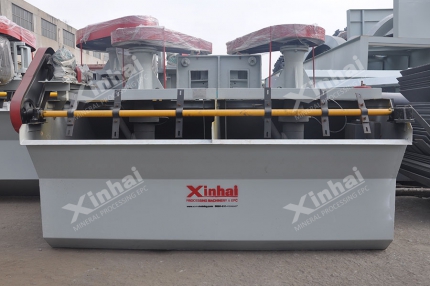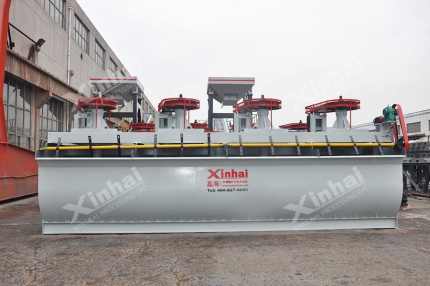Copper-zinc sulfide ores contain a variety of mineral components, and the ore properties are complex and difficult to separate. In order to achieve effective separation of copper-zinc minerals and improve the quality of concentrates, this paper proposes and solves a series of key issues based on the properties of the ore. Through systematic research and process optimization, it aims to provide theoretical support and practical guidance for the flotation separation process of copper-zinc sulfide ores.
Use the table of contents below to navigate through the guide:
01Difficulties in Copper-Zinc Sulfide Ore Flotation Separation
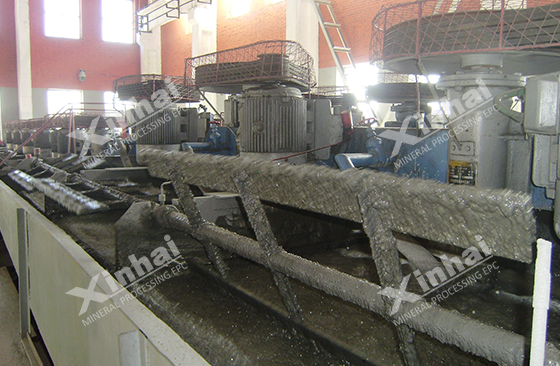
1. Different types of minerals with different grades.
Copper-zinc sulfide ore contains a variety of minerals, and the grades vary significantly. This ore property can easily cause minerals to be mixed with each other during the flotation separation process, affecting the separation effect. Therefore, it is necessary to select a reasonable flotation process and perform differentiated treatment according to the characteristics of different minerals to reduce the mixing of impurities and improve the purity of the concentrate.
2. Minerals coexist closely and the complex intercalation relationship
Minerals coexist closely and the intercalation relationship is complex, which increases the difficulty of separation during grinding and flotation. Reasonable grinding process and good reagent system are the key to solving this problem. By studying and determining the optimal grinding particle size and reagent ratio, the minerals can be effectively dissociated, the selective separation in the flotation separation process can be enhanced, and the efficient separation of copper and zinc minerals can be ensured.
3. The influence of pyrrhotite and pyrite
The ore contains pyrrhotite and pyrite, which are easy to enter the copper and zinc concentrates during the flotation process, resulting in an increase in the iron content in the concentrates and affecting the quality of the concentrates. In order to reduce the influence of pyrrhotite on the quality of the concentrates, effective measures need to be taken during the beneficiation process, such as optimizing the flotation conditions and reagent system, reducing the flotation amount of pyrrhotite, and ensuring the purity of the concentrates.
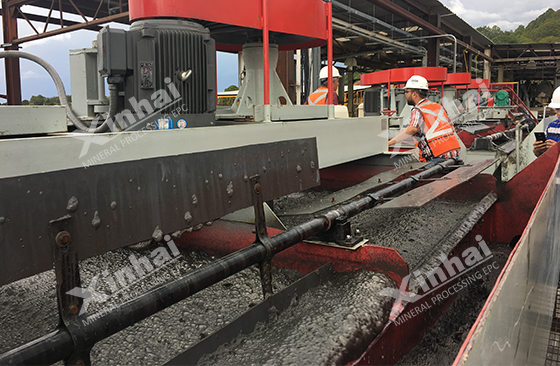
4. Sludge of chlorite
Chlorite is prone to sludge during the grinding process, and the resulting sludge will seriously affect the flotation process. The presence of sludge not only reduces the efficiency of flotation, but also leads to a decrease in the quality of the concentrate. Therefore, special attention should be paid to the direction of the sludge during flotation, and a suitable reagent system should be selected to reduce the impact of the sludge on flotation to ensure the flotation effect and the quality of the concentrate.
5. Arsenic content in arsenopyrite
Ore contains a large amount of arsenopyrite, and arsenic is harmful to both the human body and the environment. During the copper and zinc operations, the presence of arsenic will seriously affect the quality of the concentrate. Therefore, the arsenic content should be reduced as much as possible during the beneficiation process. By selecting a suitable collector and adjusting the flotation conditions, the flotation of arsenic can be reduced and the safety and environmental protection of the concentrate can be improved.
02Optimization of flotation separation process for copper-zinc sulfide ore
1. Optimization of flotation process
In view of the problem of a wide variety of minerals and different grades, a reasonable flotation process was designed. Through experimental research, the optimal flotation conditions and reagent system were determined, which reduced the mixing of impurities and improved the separation efficiency of minerals.
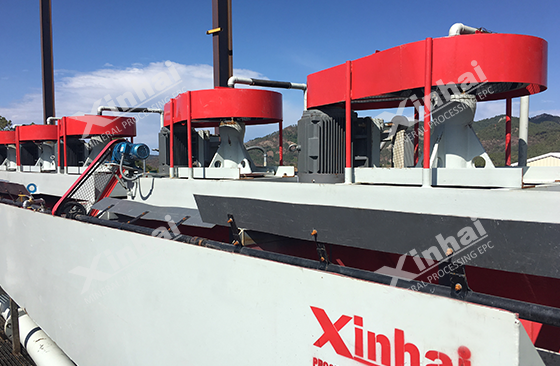
2. Grinding process and reagent system
In view of the problem of close symbiosis and complex intercalation of minerals, the optimal grinding particle size and reagent ratio were determined through experiments. Reasonable grinding process can effectively dissociate minerals and improve the selectivity of subsequent flotation process. At the same time, the reagent system is optimized to enhance the selective separation effect of minerals during flotation.
3. Reduce the impact of pyrrhotite
By adjusting flotation conditions and optimizing the chemical system, the flotation amount of pyrrhotite was reduced. Experimental results show that the adjusted process significantly reduces the iron content in copper and zinc concentrates, improves the purity of the concentrates, and ensures an improvement in the quality of the concentrates.
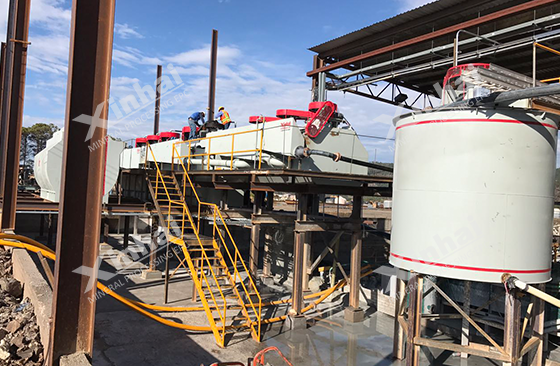
4. Control chlorite mudification
Optimize the grinding process and reduce the degree of mudification of chlorite. Choose the appropriate chemical system to control the direction of the slime during the flotation process and reduce the impact of the slime on the flotation. Through this series of measures, the flotation effect is effectively improved and the quality of the concentrate is ensured.
5. Reduce arsenic content
The selection of appropriate collectors and flotation conditions reduces the flotation of arsenic and improves the safety and environmental protection of the concentrate. Through experimental research and process optimization, the arsenic content in the concentrate has been significantly reduced and the quality of the concentrate has been improved.
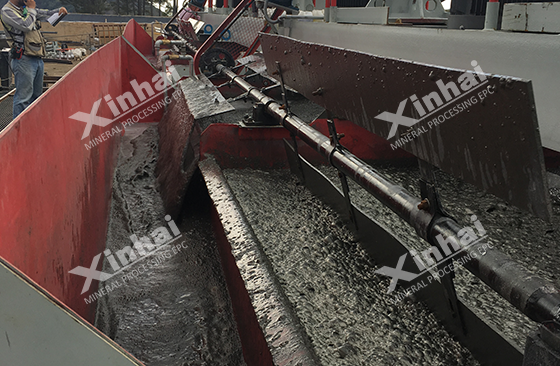
This article focuses on the complex properties of copper-zinc sulfide ores, focusing on issues such as diverse mineral types, close symbiosis, the influence of pyrrhotite and pyrite, chlorite mudification, and arsenic content in arsenopyrite. Through systematic research and process optimization, It effectively solves the key technical problems in the flotation separation process and significantly improves the quality of the concentrate. These research results provide important technical support and guidance for actual production, and are of great significance for improving the beneficiation efficiency and environmental protection of copper-zinc sulfide ores.


 marketing@ytxinhai.com
marketing@ytxinhai.com  0086 13810327080
0086 13810327080 




























































































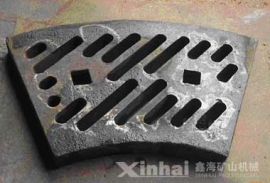









 CHAT
CHAT MESSAGE
MESSAGE




